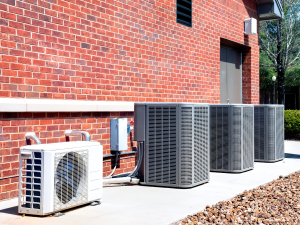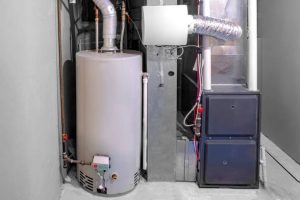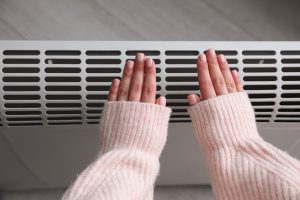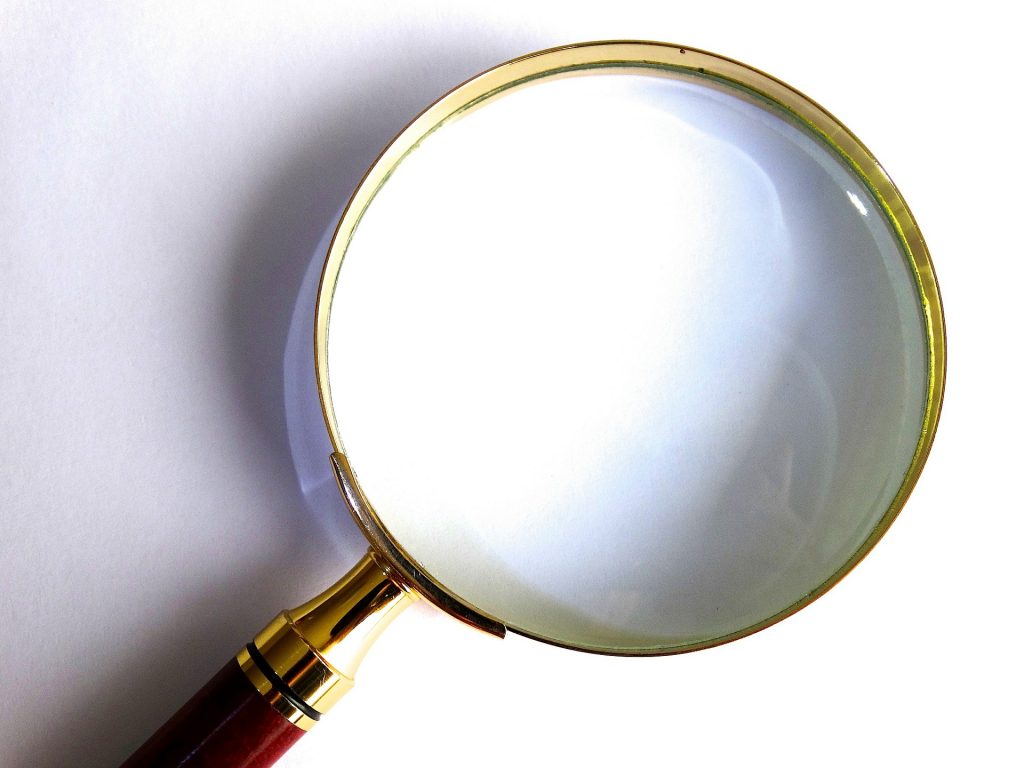It is likely that you are here reading this because you’ve just discovered that your furnace smells. There is nothing worse than turning on your furnace and finding your home filled with a weird smell coming from the furnace. Many things can cause furnace smells, and not all of them are a problem once the odor has cleared. Let’s look at some of the reasons your furnace smells bad so you can properly identify the problem before calling in a furnace repair.
Cracked Heat Exchanger
Your furnace is only as good as the sum of its parts; if one of its components fails, the whole system can fail. An early indication of this impending doom is the chemical smell from a cracked heat exchanger. A damaged heat exchanger can produce a scent similar to that of formaldehyde. If you detect this odor in your home, consult a professional immediately. Failure to replace this component will reduce efficiency and lead to fires or deadly carbon monoxide leaking into your home.
Dampness
Where your furnace sits may have something to do with the odor. If it is located in a damp part of your home, moisture can get into it. Once the furnace is turned on and gets hot, this moisture will burn off and spread the smell of dampness throughout the heating vents. The smell will lessen and disappear as the moisture evaporates.
Dust
Whether your HVAC has gotten older, been abused, or suffered damages leading to poor operation, repairs to keep it running can add up quickly. While most HVAC systems require some repairs and maintenance, this should not be allowed to become excessive. If you find yourself making constant repairs, especially if some of them are the same ones time after time, you should look at how much those repairs have cost. If they add up to more than half the price of a replacement, it is time to upgrade your system.
Gas Leaks
If you use natural gas as fuel for your furnace, you may experience a smell similar to that of rotten eggs. This comes from the purposeful treatment of natural gas with sulfur and measures gas companies take to give this usually odorless gas a distinct odor. The horrid odor is intentional. It lets homeowners know that they have a leak almost immediately. If you smell sulfur after turning your furnace on, exit your home immediately. You’ll need to call your gas company and an HVAC expert to correct the problem before re-entering your home.
Polluted Intake
If your furnace has an intake that brings air in from outside your home, there is the potential for contamination. Smells near the intake system can be sucked into your home, creating furnace smells. This might be okay if you’re pulling in the smell of your rose bushes, but it’s not so nice if you’re pulling in odors from a sewer grate or a deceased animal. You’ll need to locate and eliminate the smell to correct the problem.
Mold
If your furnace is constantly exposed to moisture, mold can easily develop within it. The smell, if given off through your furnace, is similar to that of the dampness noted earlier, but it can last much longer. If you find yourself experiencing an earthy or musty smell for an extended period, you will need to locate the mold and remove it. It will not burn off like simple moisture.
Blockages
Different furnace smells can develop based on the nature of the blockage. If your chimney is blocked, smoke will filter back into your home. If an animal or pest has gotten stuck inside the system, it may begin to decompose and smell rotten. You’ll need to turn off the system and call a professional to inspect and remove the obstruction.
Dirty Filters
Your furnace contains various filters that help clean the air in your home. Like any other filter, these get dirty over time. If your filter becomes clogged, not only will it not operate efficiently, but it will also begin to smell like whatever is clogging it. Additionally, furnace filters can break down and might smell of motor oil. Changing the filter should correct the issue, but if it doesn’t, you may have a more serious problem, such as an oil leak which needs to be attended to by a professional.
Overheating
Electrical or hot metal smells from your furnace are a sign of trouble. You should never ignore these kinds of smells as they signify your furnace is overheating. The automatic shutoff may be faulty and failing. Turn your unit off and have it checked by a qualified HVAC technician.
Contaminated Vents
Smells emanating near a vent intake can get sucked into the register and pushed through the system, flowing back out into other areas of the house. Even those present outside a vent where the air is blowing across them can push the smell into the air. One of the most common causes of this comes from pets or babies. Has your dog fouled near a vent? Has a dirty diaper pail or cat litter box been placed too close?
Removing any smells near a vent should eliminate these kinds of furnace smells. If you are unable to locate the origin of the smell and it persists, you should contact a professional for assistance.
Conclusion
You should never have a persistent smell coming from your system. If you are experiencing unpleasant odors that don’t quickly disappear, you should always have a licensed HVAC technician examine your system and provide answers for the problem.
While some furnace smells may be more unpleasant than harmful, those persistent smells left unattended can lead to more serious troubles. Sometimes, you may be endangering your health by letting them persist.
The moment that you have to ask yourself, “Why does my furnace smell?” is the same moment that you should begin seeking answers. That smell coming from the furnace could be your earliest warning sign that there is a problem that needs to be corrected right away.














